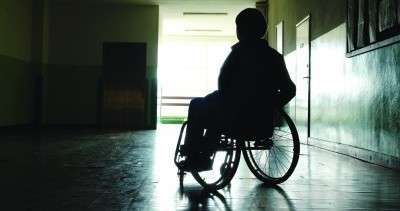Research into the experiences of young people with acquired brain injury (ABI) and their carers has shed new light on their pathways to rehabilitation, housing and support.
In a collaborative project, Melbourne researchers examined the experiences of people with severe ABI and their families in acute (short-term) care in hospitals over 18 months. The project, completed from January 2014-July 2015, tracked their pathways from hospital and outcomes, while providing information services through a BrainLink Hospital Liaison Project - a program that provides a direct link between acute care in hospital and life in the community after discharge.
The project found that patients and their families receiving timely information, referrals and support pathways through the Hospital Liaison Project experienced better recovery and prospects for returning to community living while combatting common feelings of isolation, stress, carer burden and overload.
New solutions to both access to information and rehabilitation pathways of care for young people with acquired brain injury were identified in the study, funded by NAB and delivered by the Summer Foundation and BrainLink, with Melbourne Health, Alfred Health and Monash University.
Evidence gathered supports recommendation eight in the recent Federal Government Senate Inquiry into Adequacy of Existing Residential Care Arrangements for People with Disabilities in Australia identifying the need for a national rehabilitation strategy and framework for slow stream rehabilitation.
Research co-author Libby Callaway, from Monash University and the Summer Foundation, said the study drew attention to the limited housing options and support available to patients, with post-rehabilitation most often resulting in a return home with limited support or discharge to residential aged care.
"This research has highlighted that with access to timely rehabilitation people with severe ABI have the potential to make gains that open up options for return to community living; however, housing choices remain limited," Ms Callaway said.
The report from the Senate Inquiry into Adequacy of Existing Residential Care Arrangements, released last month, identified the need for a national approach to both housing and rehabilitation.
Associate Professor Natasha Lannin, Alfred Health and La Trobe University, said these areas require urgent government focus.
"New rehabilitation models, such as the Alfred Health ABI Rehabilitation Service based at Caulfield Hospital, are vital for people who, due to the severity of their injury, would not have been eligible for traditional inpatient rehabilitation," Associate Professor Lannin said.
Provided at a stage in ABI recovery when the person will most benefit, the impact of this slow stream rehabilitation is measurable in both social and economic terms and will help build pathways to community living beyond aged care settings."
The Hospital Liaison Project, by BrainLink in collaboration with Melbourne Health, provided information and referral pathways to over 300 people with ABI and their families within a 12-month period and has received further philanthropic funding to extend this important role. Families receiving this support reported benefits gained from information, practical input, continued education and referral process to combat isolation, emotional distress, stress and carer burden and overload.
Sharon Strugnell, CEO of BrainLink said "appropriate, accurate and timely information about a variety of areas, pathways and referral systems can reduce the stress and emotional situation experienced by a family or carer of a person in both the early days in hospital following brain injury, and on the lifetime journey this group face.
"Families have informed BrainLink that the earliest possible support has helped them to adapt and come to terms with an ABI and, for many, it has achieved better long-term outcomes for both the person with ABI and their family."
Provided by Monash University



















